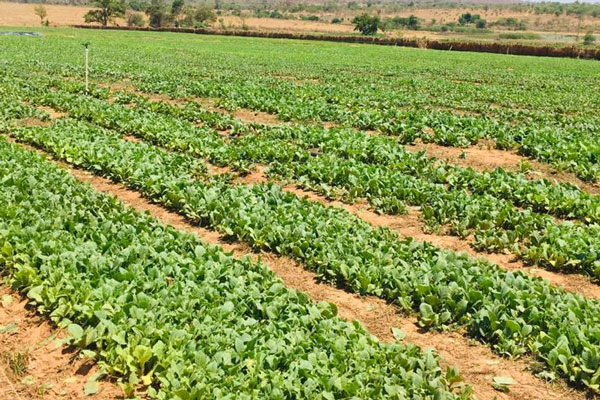
environment:By KENNEDY NYAVAYA
This year’s farming season has begun in most of the country’s tobacco growing regions with an estimated total of over 180 000 growers expected to plant the financially lucrative golden leaf.
According to the Zimbabwe Tobacco Association, the crop accounts for 15% of the gross domestic product (GDP) of the country and 25% to total exports. This year the total output for the crop grew to 259 million kg from 253 million kg last year.
With these figures in mind, there is no doubt that the highly priced leaf is the backbone of commercial agriculture in Zimbabwe which has seen many farmers attempt their hand at growing it.
But, added to being capital intensive, tobacco growing has over the years proven to be ecologically unsustainable, raising the ire of many environmentally conscious people across the country.
According to the World Health Organisation (WHO), the world could record more than eight million tobacco-related deaths a year by 2030, amounting to 10% of annual deaths worldwide.
A significant number of these deaths will be as a result of the devastating environmental effects tobacco production causes.
At the 56th World Health Assembly held in Geneva, Switzerland on 21 May 2003, WHO adopted the Framework Convention on Tobacco Control (FCTC), a treaty to address the environmental concerns regarding tobacco.
- Chamisa under fire over US$120K donation
- Mavhunga puts DeMbare into Chibuku quarterfinals
- Pension funds bet on Cabora Bassa oilfields
- Councils defy govt fire tender directive
Keep Reading
“In carrying out their obligations under this convention, the parties agree to have due regard to the protection of the environment and the health of persons in relation to the environment in respect of tobacco cultivation and manufacture within their respective territories,” reads Article 18.
However, Zimbabwe, a signatory to the treaty, has been struggling to protect the environment, in fact there has been an increase in loss of vegetation in what spells catastrophe for the southern African country and the world at large.
The Forestry Commission and the Environmental Management Agency estimate that tobacco farming has been contributing about 15% to the loss of indigenous forests annually due to tobacco curing.
This deforestation for tobacco growing has many serious environmental consequences — including loss of biodiversity, soil erosion and degradation, water pollution and increases in atmospheric carbon dioxide.
While other countries discuss the idea of banning the farming of tobacco entirely, our financially unstable country is faced with a tough balancing act to milk the crop for all its worth subsequently flouting its international obligation or champion sustainability.
Considered the largest non-food crop by monetary value in the world, banning tobacco seems like an impossible route for the country which may now need to map out sustainable ways of production.
There is need to ensure that the entire tobacco production is carried out more sustainably according to Pardon Mhuri, a tobacco seedling producer.
“We understand the potential negative impact that tobacco unlike other cash crops can have on the environment. Deforestation and desertification are real threats that our country is facing,” said Mhuri during the launch of Mhuri Farming seedling scheme in Karoi last week.
The organisation will roll out a nursery of eight hectare seedbeds, which will produce 2 000 hectares of seedlings for 2 000 small-scale and commercial farmers in Mashonaland West province, the home to over 60 000 farmers of the crop.
Mhuri has pledged to give 400 gum trees to all his customers as a measure to counter the crop’s environmental effects.
“We engage in sustainable farming practices and this is critical in the tobacco industry where firewood is used by the bulk of farmers to cure their tobacco, so reforestation becomes necessary,” he said, adding that they will be tracking the planting of the trees.
According to the FCTC, the tobacco industry should be held responsible for the health and environmental harms related to tobacco growing and all activities associated with tobacco growing and the supply chain, and for ensuring respect for human rights for those working in connection with tobacco growing and the supply chain.
In essence tobacco farming is largely unsustainable but Mhuri believes with more effort from farmers changing their means of production to be more favourable, there are ways to reap huge financial benefits while leaving the environment healthier.
“We encourage farmers in our vicinity to use other alternative sources of energy for curing tobacco other than firewood,” he said.
“We believe one should leave the environment better than how one finds it.”
Given the demand and financial benefit, it seems impossible for the country to ban tobacco but environmentally sustainable growing of the golden leaf could certainly go a long way in reducing harm on the planet.










